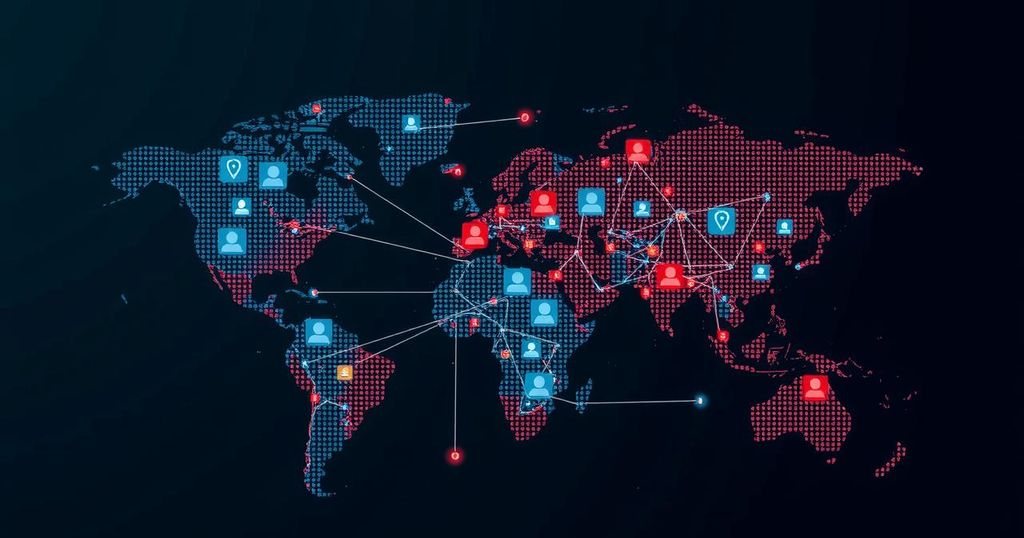Meta Platforms, Inc. declared that the influence of AI on the 2024 global elections was limited, owing to effective defense measures against misinformation. The company dismantled multiple coordinated disinformation operations, primarily from state actors in Russia, Iran, and China, while efficiently tackling AI-generated content. Despite concerns from the public, robust actions allowed Meta to maintain a relatively positive discourse surrounding the elections.
Meta Platforms, Inc. has reported that artificial intelligence (AI) had a “modest” impact on global elections in 2024. The company stated that it successfully implemented defense mechanisms to thwart AI-driven misinformation campaigns from gaining traction on its platforms, including Facebook, Instagram, and Threads. During a press briefing, Nick Clegg, Meta’s President of Global Affairs, emphasized that despite anticipations of significant AI influence, the actual repercussions were limited due to proactive measures taken by the company.
In 2024, Meta established numerous election operations centers worldwide to oversee content integrity amid major elections in countries such as the United States, India, and Brazil. Clegg noted that the majority of influence operations disrupting its platforms originated from Russia, Iran, and China, with the company neutralizing about 20 such operations this year. He further remarked that the prevalence of AI-generated misinformation was minimal, with the platform efficiently labeling or removing harmful content.
Clegg remarked, “People were understandably concerned about the potential impact that generative AI would have on elections during the course of this year. Any such impact was modest and limited in scope.” Instances of AI-generated misinformation, including deepfake videos, were effectively debunked before they could significantly sway public opinion.
Despite the estimations of approximately 2 billion individuals participating in elections globally in 2024, the volume of AI-generated misinformation remained low, with proactive measures facilitating the quick removal of misleading content. Nonetheless, certain studies indicated a rise in misinformation on competing platforms, such as TikTok, raising concerns about the evolution of attempted disinformation tactics.
The American public’s concern about AI’s role in elections is illustrated by a Pew Research survey, which indicated that many citizens expected AI to be utilized for predominantly negative purposes. Furthermore, President Biden introduced initiatives aimed at harnessing AI for national security, emphasizing the necessity for trustworthy technological advancements.
Meta has faced criticism regarding its content moderation practices, with calls for more transparency and fewer instances of perceived censorship from specific political perspectives. Clegg acknowledged concerns from Republican lawmakers about censorship and outlined Meta’s intentions to refine its practices while maintaining the integrity of election discourse.
In summary, while the 2024 elections showcased fears surrounding AI’s potential threat, Meta’s robust defenses effectively mitigated the impact, allowing for a predominately positive utilization of their platforms during this pivotal year in global elections.
Meta’s assertion regarding the modest influence of AI on the 2024 elections comes amidst widespread international anxieties about the potential for misinformation to shape electoral outcomes. The tech giant implemented a series of defensive strategies to combat disinformation campaigns, particularly from foreign actors known for such activities. As the largest election year unfolded with numerous significant elections, Facebook and its affiliated platforms adopted rigorous monitoring processes to enhance content authenticity and ensure the reliability of information disseminated to the public. Additionally, recent studies and public opinion surveys suggested an increasing wariness among the electorate regarding the potential misuse of AI in electoral contexts.
In conclusion, Meta’s declaration that AI had only a modest impact on global elections in 2024 underscores the effectiveness of its comprehensive monitoring strategies against misinformation. The company’s proactive measures and swift response to potential threats appear to have considerably mitigated risks associated with AI-driven disinformation campaigns. Even as some concerns persist regarding alternative social media platforms, the overall resilience demonstrated by Meta signifies a successful approach to safeguarding electoral integrity against the evolving landscape of misinformation.
Original Source: www.aljazeera.com







